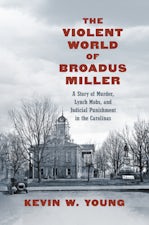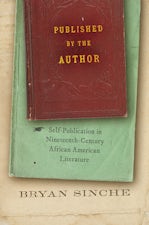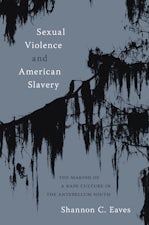From Cotton Field to Schoolhouse
African American Education in Mississippi, 1862-1875
By Christopher M. Span
272 pp., 6.125 x 9.25, appends., notes, bibl., index
-
Paperback ISBN: 978-1-4696-2221-7
Published: December 2014 -
E-book EPUB ISBN: 978-1-4696-0133-5
Published: April 2012 -
E-book PDF ISBN: 979-8-8908-8288-2
Published: April 2012
Buy this Book
- Paperback $37.50
- E-Book $19.99
For Professors:
Free E-Exam Copies
The primary debate centered on whether schools for African Americans (mostly freedpeople) should seek to develop blacks as citizens, train them to be free but subordinate laborers, or produce some other outcome. African Americans envisioned schools established by and for themselves as a primary means of achieving independence, equality, political empowerment, and some degree of social and economic mobility--in essence, full citizenship. Most northerners assisting freedpeople regarded such expectations as unrealistic and expected African Americans to labor under contract for those who had previously enslaved them and their families. Meanwhile, many white Mississippians objected to any educational opportunities for the former slaves. Christopher Span finds that newly freed slaves made heroic efforts to participate in their own education, but too often the schooling was used to control and redirect the aspirations of the newly freed.
About the Author
Christopher M. Span is associate professor of education policy, organization and leadership and associate dean for academic programs at the University of Illinois at Urbana-Champaign.
For more information about Christopher M. Span, visit
the
Author
Page.
Reviews
"Span's book, grounded as it is in prodigious archival research, can well serve as an exemplar for other southern state histories of black educational efforts before, during, and after the Civil War. Those interested in African-American history, Southern history, Reconstruction history, and African-American educational history will find it most informative."--Journal of Interdisciplinary History
"A useful addition to critical studies of African American education in the post Civil War South. . . . [A] deeply researched study."--Arkansas Review
"A valuable new study. . . . Expands the consensus understanding of this subject to new terrain. . . . A well-written narrative interspersed with illustrative anecdotes."--Journal of Southern History
"Impressively researched. . . . An important contribution to the overlapping literatures of freedmen's education and Reconstruction."--American Historical Review
“An illuminating account….Span has written the first comprehensive history of black public education in Mississippi between 1862 and 1875….From Cotton Field to Schoolhouse is an engrossing account of public education in Mississippi….[and] a welcome contribution to the historiography of southern black education.”--The Journal of African American History
“Christopher Span’s deeply researched study is in large measure the story of hopes denied and dreams deferred….It does begin to fill an historical void and to illustrate the long-frustrated efforts of Mississippi freed people to seek learning as the means to throw off the shackles of slavery and oppression.”--Arkansas Review




